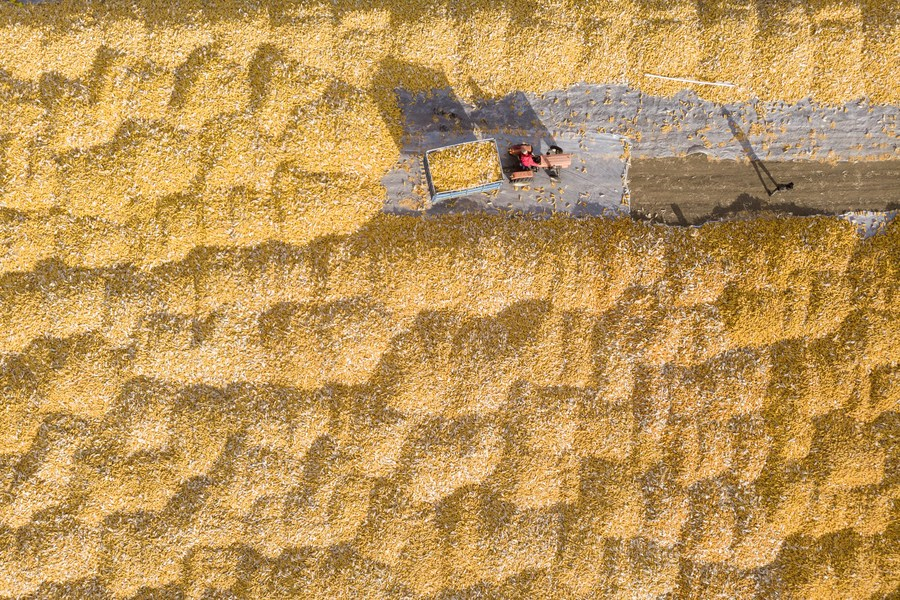China's 2023 grain output hits record high

This aerial photo taken on Oct. 19, 2023 shows a villager drying harvested corns at Dongsheng Village of Zhaodong City, northeast China's Heilongjiang Province. [Xinhua/Xie Jianfei]
BEIJING -- China's grain output rose 1.3 percent year on year to a record high of 695.41 million tonnes in 2023, data from the National Bureau of Statistics (NBS) showed Monday.
This is the ninth consecutive year for China to register a grain harvest of over 650 million tonnes.
According to the NBS, the country's corn output increased 4.2 percent from 2022, while rice and wheat production decreased 0.9 percent and 0.8 percent, respectively.
The bumper harvest occurred despite the country being hit by a series of bad weather events, including a prolonged rain spell during the harvest period in regions along the Yellow River and Huaihe River, floods in northern and northeastern regions, and drought in northwestern areas.
To encourage farmers to grow grain, the central government increased the minimum purchase price of wheat and rice, and improved grain subsidy policies for corn and soybean farmers in 2023.
As a result of the combined efforts, 119 million hectares of grain crops were sown in the country in 2023, a 0.5 percent increase over the previous year.
NBS official Wang Guirong said the harvest also coincides with the country's efforts to increase the per-unit yield of major crops and improve technological support for crop cultivation.
With the country's grain output reaching a new high in 2023, it has laid a solid foundation for the country to advance rural revitalization across the board and move faster to build up its strength in agriculture, Wang said.
China's arable land only accounts for less than 9 percent of the world's total, but it manages to feed its population of over 1.4 billion.
The new grain output record has made positive contributions to stabilizing the global grain market and ensuring the world's food security, Wang said.
























